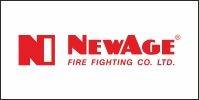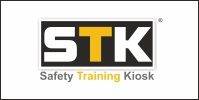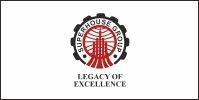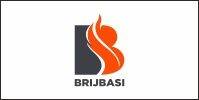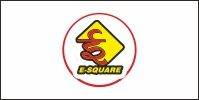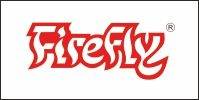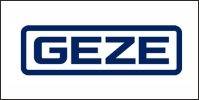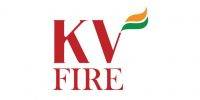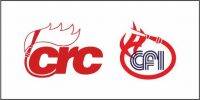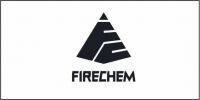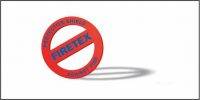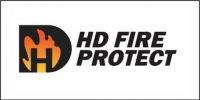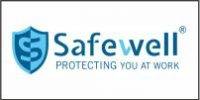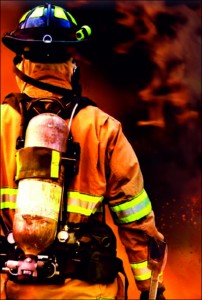 Being a firefighter is not easy and neither is the process of becoming a firefighter.
Being a firefighter is not easy and neither is the process of becoming a firefighter.
Competition is fierce and the hiring process can be very grueling and challenging, something many people do not endure or succeed at. More than 70% give up the pursuit of becoming a firefighter and move on to other career choices. There are likely many reasons for this statistic. Perhaps they did not know what they were getting into when they began the process, or they did not adequately prepare themselves.
In no specific order, here are 10 must-do things every firefighter candidate should be doing to increase their odds of getting hired:
1. Become an Emergency Medical Technician (EMT)
The great majority of departments are requiring an EMT certification to apply and more than 90% will require this certification after hire. Since most fire departments run upwards of 70% or more emergency medical related responses, it only makes sense for them to require this as a prerequisite; additionally, it is much less training they have to provide you during the recruit academy. Many departments are looking for licensed paramedics; however, before you can usually apply to paramedic school, you must first successfully pass EMT training. Work experience as an EMT on a 9-1-1 ambulance is also extremely beneficial, and often required for many paramedic programs. If you have decided on this career path, get yourself enrolled in an EMT class and consider Paramedic school only if you have a genuine interest in EMS and want to work as a Paramedic. Do not do it to simply increase your opportunities in the fire service.
2. Volunteer your time
It doesn't matter if it is fire or non-fire related volunteer experience. Departments are looking for those with the desire and ability to provide community service and nothing proves this more than doing volunteer community service work. It is also a great way to build your resume for those just getting started and get great references. There are many great opportunities out there, so seek them out and find something that interests you. The American Red Cross is always looking for volunteers, and CPR instructors. Burn camps are also a great place to volunteer and start networking with fire service professionals, but also consider homeless shelters, habitat for humanity, big brother programs and other great opportunities where you can make an impact on your community. This is what the fire service is all about and these are the kinds of people we are looking to join our team and represent our departments and profession.
3. Take fire technology classes at a local community college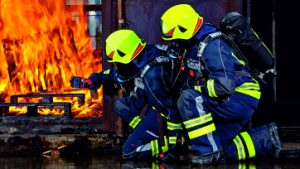
Even though this is typically not a requirement to apply for a fire job, it sure looks good on your resume and prepares you for the career. It shows some dedication, commitment and initiative towards your career of choice. Invest in your future before you get the job because most fire academies fire departments put recruits through at the beginning of their employment only scratch the surface on a number of critical areas. For example, our department recruit academy only provides 3 hours of building construction, and 5 hours of fire behavior; 2 of the most important subjects a firefighter needs to know. Do yourself a favor and take a semester long class of each at your local community college where you'll get about 53 or so hours of training on a subject that is a contributing factor of firefighter injuries and line-of-duty deaths.
4. Maintain a clean background and lifestyle
Whether you agree or disagree, it doesn't matter. The best predictor of future behavior is past behavior. Having a track record of problems (vehicle accidents, traffic tickets, arrests, domestic violence, anger management issues, etc.) will only make it harder for you to stand out in a positive way when compared to your competition. You can't change the past, but you can start making some changes that will affect your future.
5. Understand ALL of the phases of the firefighter hiring process
If you do not understand what phases you will have to successfully pass, and pass well, to become a firefighter, how are you ever going to succeed? The selection process will vary in different regions and even from department to department, but there are some basic similarities across the board. You need to become familiar with this process as a whole and each step within the process. Start doing some research on how departments in your area, or where you hope to test, conduct their recruitments and what the more commonly used phases are (oral interview, written examination, physical agility, background investigation, etc.).
6. Start taking firefighter tests
What better way to understand all of the phases of the firefighter hiring process than taking firefighter tests! Each test better prepares you for the next. Who cares if you fail a portion of the test; what matters is that you have exposed yourself to the process and more importantly, have a better idea of what to expect in the future, since most fire departments have very similar hiring process components. If you fail, (which you may – most do at some point in the process of becoming a firefighter.
I know I did, I failed a physical ability exam, a written exam and even an oral interview because I did not truly prepare and was not sure what I was getting into), make sure you learn from your mistakes and don't make the same mistake twice! You'll never know your strengths and weaknesses of the hiring process unless you start taking tests. How do I find out which departments are testing? A great place to start is to sign up for www.firerecruit.com and be advised of firefighter opportunities across the country. Don't rely on word of mouth, or rely solely on your own efforts. Most departments test very infrequently. Although some departments test every 6 months, most departments test every 2-3 years and some large metropolitan departments may go as long as 6-10 years between tests.
The test you did not hear about and did not apply with, may have been the one. Taking tests is the ONLY way to get hired, so knowing whose testing and taking the tests is obviously of utmost importance. It's worth the small investment to subscribe to a service such as FireRecruit.com to make sure you are not missing out on an opportunity.
7. Stop by fire stations
Take the time to visit your local fire stations, especially those that are a part of the fire department you are applying for. Talking to Firefighters is a great way to find out more about the career and specific department as well as any programs they may have such as cadet positions, reserve firefighter or other opportunities. Your local Firefighters are a great resource for you to learn from and start networking with. These firefighters obviously had what it took to get through the hiring process, and they may have also sat on oral boards or have been involved in their department's hiring process in some capacity. Find out what they like and dislike about their department, and ask them their advice on what you should be doing to become a firefighter and what they did. Don't believe everything you hear, but do try to listen to everyone and try to see what the common themes are. Doing a pre-interview station visit will help you during the interview.
You may be asked questions such as what you know about the department, or asked other questions where you can tie the information you obtained from the visit into your response. For example, when you're asked the question in the oral interview: "Why do you want to work for our department?" – you can honestly answer something like "I want to work for this department because when I stopped by the fire stations and met with your firefighters, I was extremely impressed by…" What that does is provide a unique story so you don't sound like every other candidate, and it shows you visited the fire stations and did your homework– something we're looking for candidates to do.
8. Get some life experience
The last think the fire department who hires you wants to do is have to train or teach you how to clean a toilet, how to treat customers, how to cook a meal, how to do dishes, how to do yard work or even basic mechanical aptitude. These are things you should bring to the job, and not expect the fire department to have to teach you! Your new Captain (a rank very commonly represented on oral board interview panels) does not want to teach you how to do any of those above mentioned duties. They should be teaching you things like fire behavior, building construction, tool and equipment operations and maintenance, etc. How does one gain life experience? By getting out of their comfort zone, exploring a variety of vocations, gaining various job skills and most importantly gaining their independence.
9. Start preparing for your background investigation
I have seen many candidates prepare for all the other phases of the testing process, pass with flying colors, but then fail the background because they lied, or had something in their background that was enough to disqualify them that they were not forthright with, or they did not have the necessary information. A background investigation packet is typically 25 or more pages in length, and is going to ask you for some intimate and specific details such as:
Information from every employer you have worked for (dates, duties, title, supervisor name, salary, etc.).
Information from every school you have attended – high school and later (degrees received, dates attended, grade point average, etc.).
Information about certificates, licenses, or other key documents you may possess and will be required to show proof of by the way of a photocopy.
Information about your family members and friends, so the background investigator can meet with them and ask about you.
Information about your credit history, including accounts at different banking institutions, amount of debt, etc. Yes, bad credit can hurt you in a background.
Information about your driving record, including dates, locations and outcomes of tickets and accidents.
Information about your military experiences, if any. It is not uncommon for this packet to be given to a candidate with the expectation to return it complete, within a week or less. Some of the above items can take months or longer to obtain; thinking you're going to get the background packet on Monday, request transcripts or military records and expect to get the needed information back to the fire department by Friday is quite unrealistic. Be prepared in advance and have this information ready now. You will need to submit to a background and provide this information once you make it through the process, so don't wait until then to do it. Many candidates wash out in the background. Don't be one of them.














